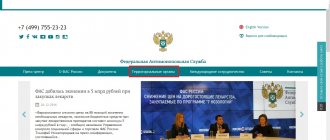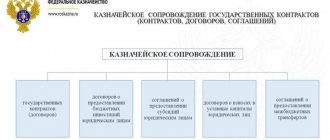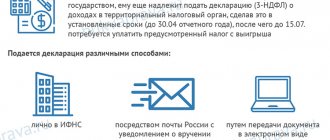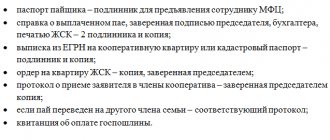The trading volume under 44-FZ is 10 times larger than trading under 223-FZ, it clearly explains the rules to participants, regulates the parameters when choosing a winner, and is therefore suitable for novice participants.
In turn, 223-FZ is less strict in terms of regulations, but more labor-intensive in preparing documents.
Let us examine in more detail the differences between these two laws.
Registration in the ERUZ UIS
From January 1 2020 , in order to participate in bidding under 44-FZ, 223-FZ and 615-PP, registration in the ERUZ register (Unified Register of Procurement Participants) on the EIS (Unified Information System) portal in the field of procurement zakupki.gov is .ru.We provide a service for registration in the ERUZ in the EIS:
Order registration in the EIS
The main differences between 44-FZ and 223-FZ
| 44-FZ | 223-FZ |
| This law applies to all procurement by government customers and controls all stages of the transaction . Neglecting the rules can lead to serious problems: for customers - fines and cancellation of already completed purchases, for entrepreneurs - inclusion in the RNP - the register of unscrupulous suppliers. Such strict rules allow the winner to be sure that the contract will be concluded with him, and the work and goods will be paid for. | Law 223-FZ establishes only general procurement principles for participants. Basic rule: the company is obliged to personally develop its own Procurement Regulations . This provision should describe the requirements for participants and how to identify a supplier. The main thing you need to familiarize yourself with when participating in tenders under 223-FZ is the provision on the purchase of a specific customer. |
223-FZ and 44-FZ: main differences
Federal laws 44 and 223 regulate the actions of customers and performers in the field of public procurement. Their content and approaches to describing procedures differ significantly.
Federal Law 44 governs the procurement of all budgetary institutions at the state and municipal levels, as well as unitary enterprises (except for particularly important ones) - all kinds of hospitals, kindergartens, military units, tram and trolleybus parks. This is a detailed document that describes in detail all stages of organizing tenders, strictly fixes deadlines and provides for clear penalties.
Law 223 was created for special customers:
- Organizations with a state share of more than 50%. Example: Gazprom.
- State monopolies, their “daughters” and “granddaughters”. For example: Russian Railways and FPK.
- Those engaged in regulated activities such as energy.
- Unitary enterprises recognized as state important.
Also, some customers who fall under 44-FZ can purchase under 223-FZ, but on the condition that they spend money not from the budget, but independently earned money received in the form of grants or allocated to them for hiring subcontractors.
223 law is written in general phrases. It does not contain specifics, but outlines only the principles that customers should follow when independently developing the Procurement Regulations for the coming year. They are required to publish it in the Unified Information System – www.zakupki.gov.ru. The state gives such customers quite a lot of freedom, since it only partially finances their purchases. However, for suppliers this is, to put it mildly, inconvenient: each time they have to study documentation, which can be radically different, and adapt business processes and the product to new conditions. But the result is worth it: more serious purchases are carried out under 223-FZ.
The main disadvantage of 44-FZ for the supplier is that the law regulates literally every comma, every action of tender participants, since orders are fully paid for from the state budget. It is 10 times larger in volume than 223-FZ. And any violation of procedures results in disqualification, fines and even inclusion in the register of unscrupulous suppliers, which means an end to tender (and other) activities.
Let's look at other differences between the two laws that are significant for suppliers:
| Federal Law No. 44-FZ | Federal Law No. 223-FZ |
| What types of procurement are provided? | |
At the same time, the law is more focused on competitive types, and the popular method of purchasing from a single supplier is limited by Article 93 and requires justification. |
However, the customer may prescribe regulations for any other method in the Regulations. |
| On which ETPs are tenders published? | |
| The customer chooses the site himself. There are about 200 of them, some paid and free, and the number is constantly changing. |
| What type of digital signature is required? | |
| Reinforced unskilled. | Reinforced qualified. |
| Is security for the execution of an application or contract required? | |
| Mandatory for auctions and competitions, in other cases - at the discretion of the customer. The supplier can choose the method: money or bank guarantee. The electronic auction is cash only. | At the discretion of the customer. The methods are also described by the customer in the Procurement Regulations. |
| Does the customer have to justify the initial maximum price? | |
| Without fail. Article 22 lists the calculation methods for justification. | The law does not oblige. The customer describes the procedure for setting the price of the lot in the Regulations. |
| What are the features of the description of the subject of purchase? | |
| You cannot demand delivery of a product from specific manufacturers. The brand of a product can be indicated if work/services are performed with its participation, but with permission to use an equivalent. | You can refer to a specific product or brand. |
| Where to find application deadlines | |
| They are spelled out in detail for each procurement method in Article 42. | They are prescribed by the customer in the Regulations. |
| Is it possible to make changes to the notice or cancel the purchase? | |
| It is permitted to change the notice or cancel the tender. For each method, the law establishes clear deadlines for publishing such changes in the Unified Information System, as well as the number of days by which it is necessary to extend the acceptance of applications after updating the notice. The exception is requests for proposals and purchases from a single supplier - for them, changing the conditions in the notice and canceling the purchase is prohibited. | There are deadlines only for auctions and competitions. For other methods, they are determined by the Regulations. |
| Is it possible to change the terms of the contract? | |
| The rules are enshrined in Article 34 and do not provide for any changes other than increasing the contract price in certain cases. | The customer can change almost everything - delivery volume, price, terms. |
| Which suppliers have priority? | |
| At least 15% of the annual volume should be purchases from small businesses and socially oriented non-profit organizations | It is necessary to purchase at least 10% of the annual volume from NPOs and only if it is more than 2 billion rubles. The decree of July 1, 2015 obliges to give preference to domestic manufacturers, small and medium-sized businesses: their annual purchase volume must be at least 18% of the total volume of contracts. |
| Are there any special conditions? | |
| Not provided. |
Customers
| 44-FZ | 223-FZ |
|
|
Procurement participants
How 44-FZ differs from 223-FZ in terms of requirements for procurement participants, we will see from the following table.
| Participants | Law No. 44-FZ | Law No. 223-FZ |
| Customers | Government bodies. State corporations (Roscosmos, Rosatom). Any state unitary enterprises and municipal unitary enterprises that purchase from budget funds. State institutions | Companies with a government share in their capital of more than 50%. Subjects of natural monopolies. Organizations conducting regulated activities (gas, heat, water supply, etc.). Budgetary institutions, state unitary enterprises, municipal unitary enterprises that purchase from their own funds or grants |
| Suppliers | Legal entities (with the exception of offshore companies). Individual entrepreneurs. Individuals | Legal entities. Individual entrepreneurs. Individuals. Collective participants |
Preferences for participants
| 44-FZ | 223-FZ |
Of the total number of purchases, government customers are required to carry out 15% from small businesses and non-profit socially oriented organizations. |
According to government decree, the annual volume of purchases from NSR entities under 223-FZ must be no less than 18% of the total annual volume of contracts. This decree came into force on July 1, 2015 for those customers with annual revenues of more than 10 billion rubles, and from January 1, 2021 it will be valid for everyone. |
Procurement methods
| 44-FZ | 223-FZ |
There are many ways to select winners:
| Only two types of procedures are required:
In the Procurement Regulations, the customer can determine the regulations for any other procurement methods. An order from a single supplier is possible, but to do this it is necessary to reflect the reasons for such purchases in the regulations. |
Types of procedures
44-FZ lists all types of procedures and strictly regulates each.
Types of procedures under 44-FZ:
- competition in regular and electronic forms: open, with limited participation, two-stage;
- electronic auction;
- closed competitions and auctions (all types);
- request for quotations, including in electronic form;
- request for proposals;
- purchase from a single supplier.
223-FZ regulates only certain types of procedures: competitive (competition, auction, requests for quotations and proposals), including in electronic form, closed procurement and procurement from a single supplier. But at the same time, it leaves customers the right to independently choose other types of procedures; the main thing is to provide for them in the procurement regulations.
Electronic platforms
| 44-FZ | 223-FZ |
Eight federal ETPs:
The customer must select one of the sites for placement. Registration for the ETP of government procurement is free. | There are more 300 commercial ETPs. The most famous of them:
Each customer can choose any of them independently, there are no restrictions. Some ETPs have a subscription fee or a fee for registering on the site. |
Procurement planning
| 44-FZ | 223-FZ |
Planning in two stages:
Both documents are posted in the Unified Information System on the website zakupki.gov.ru. |
A separate document, valid for 5 to 7 years, is drawn up by customers for the purchase of innovative, high-tech products and medicines. |
Posting period and contents of the notice
| 44-FZ | 223-FZ |
The deadlines for posting notices for each procurement method are strictly defined. For example:
The content of the notice is strictly regulated by the norms of 44-FZ. Some types of purchases from a single supplier may not require posting of a notice. | The deadline for posting notices is established exclusively for auctions and competitions - they are at least 20 days. For other procurement methods, the terms are determined by the Procurement Regulations. The information that must be contained in the procurement notice is determined by part 8 of Article 4. The customer has the right to enter additional information specified by the Regulations. |
Trading results
The winning bidder must sign the contract within the prescribed period: on the ETP (in an electronic auction) or on paper. Bidders should study their results according to the procurement protocol, namely:
- the number of participants and the prices they offered;
- how much the price has decreased (in percentage);
- who was declared the winner.
Find out from the winner how often he wins purchases from this customer, whether the price he offers is competitive, and whether collusion is possible. If you have any suspicions, you should not waste any more time on purchases from this customer.
When analyzing procurement based on the results of a competition, you can understand the reasons for the loss, find out what you are missing: licenses, qualified personnel, experience. This will help you adjust your strategy when participating in the next trades.
Within ten days after the winner is announced, all participants have the opportunity to appeal the results of the tender to the FAS. If serious violations are discovered, the procurement results will be canceled.
Tags : procurement,
September 13, 2016
Number of views: 7480
Please rate how useful this material was.
Rating: 4.5/5 — 6 votes
Similar articles:
- Court: in the public procurement notice you can indicate information in the form of a reference to documentation (141)
- Regulations have been approved for checking delivered goods using both video and photographic equipment for compliance with information under the contract (137)
- FAS RF: when conducting a repeat procurement in the field of construction, the participant will only need to submit “consent” to participate (127)
Comments ()
- Borya March 19, 2021, 20:55 0
Very helpfulanswer
Reporting provided by customers
| 44-FZ | 223-FZ |
On the official government procurement website zakupki.gov.ru the customer is required to place:
| No later than the 10th day of the month following the reporting month, the customer posts reports on the total cost on zakupli.gov.ru:
|
Enforcing the contract
| 44-FZ | 223-FZ |
| The winner of a competition or auction is obliged to financially secure the contract, regardless of its price. The amount of security is from 5 to 30% of the initial maximum contract price. The supplier chooses the provision method. This is either depositing funds into the customer’s account or providing a bank guarantee. If a bank guarantee is used, it must be issued by an authorized bank and be entered in the register of bank guarantees at zakupki.gov.ru. | If there are requirements for security, then it must be specified in the Procurement Regulations. |
What does Federal Law 223 regulate?
The law contains rules for procurement for natural monopolies, state corporations, etc. At first glance, the rules under Federal Law 44 and Federal Law 223 are very similar. But upon closer study of these regulations, experienced suppliers understand how Federal Law 44 differs from Federal Law 223. The latter gives participants a certain freedom. They have the right to prescribe their own conditions for bidding and choose procurement options. Federal Law 223 is aimed at supporting small enterprises and developing the tender system as a whole.
From April 1, changes to Law No. 223 come into force, which relate to tenders for SMEs (452-FZ dated December 22, 2020):
- the procedure for holding a competition in electronic form has been changed;
- requirements for applications have appeared;
- clarified what information to request from the participant.
Read more: “Features of procurement from SMP under 223-FZ in 2021.”
The list of customers is also expanding and the Ministry of Finance is being given the function of monitoring procurement.
From April 16, changes come into effect that oblige customers to calculate the initial (maximum) contract price. They gave 90 days to adjust the Regulations (86-FZ dated 04/05/2021).
Appealing the customer's actions
| 44-FZ | 223-FZ |
| A complaint is possible; the law even prescribes an algorithm of actions. The application must be submitted in writing to your territorial FAS office. The complaint must be published within 2 working days on zakupki.gov.ru. It will be reviewed for another 5 days and a decision will be made. | Complaints against customers are considered by the FAS. The deadline for filing a complaint must be clarified from the Procurement Regulations. The Commission will also rely on this provision and on the Civil Code of the Russian Federation. You can calculate the risks in advance by looking at complaints against the customer in the complaint register on the official website. |
Complaints and termination of contract
| Appealing the customer's actions | |
| Law No. 44-FZ | Law No. 223-FZ |
| The algorithm for filing a complaint is prescribed in 44-FZ. The application is submitted in writing or electronically to the territorial office of the FAS. The complaint is published on zakupki.gov.ru within 2 business days. Another 5 working days are allotted to consider it and make a decision. | You can complain to the FAS if the customer violated 223-FZ or its procurement regulations. Complaints about violations of 223-FZ are considered expeditiously - within 7 days. And complaints about antimonopoly violations - within 1 month |
| Termination of contract | |
| The parties can terminate the contract by mutual consent or stipulate in the contract the opportunity to terminate the contract unilaterally (see “Unilateral termination of a contract under 44-FZ” and “How to terminate a government contract by agreement of the parties”). Disputes are resolved by the court. It is impossible to change the essential terms of the contract (price, terms, delivery conditions, completeness of goods, etc.). | The customer specifies all the conditions in his procurement regulations. |










